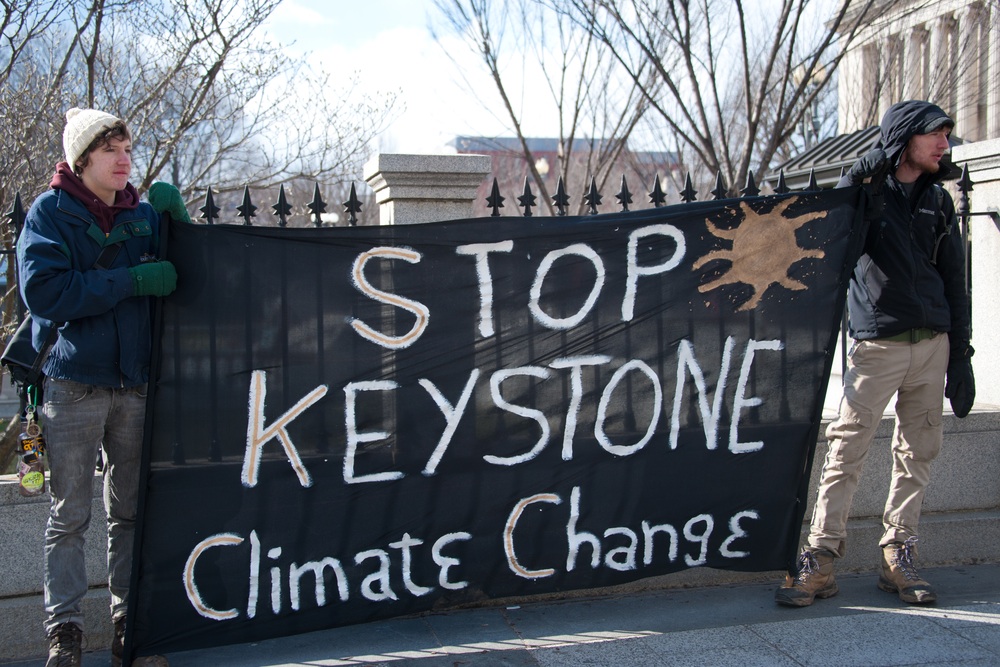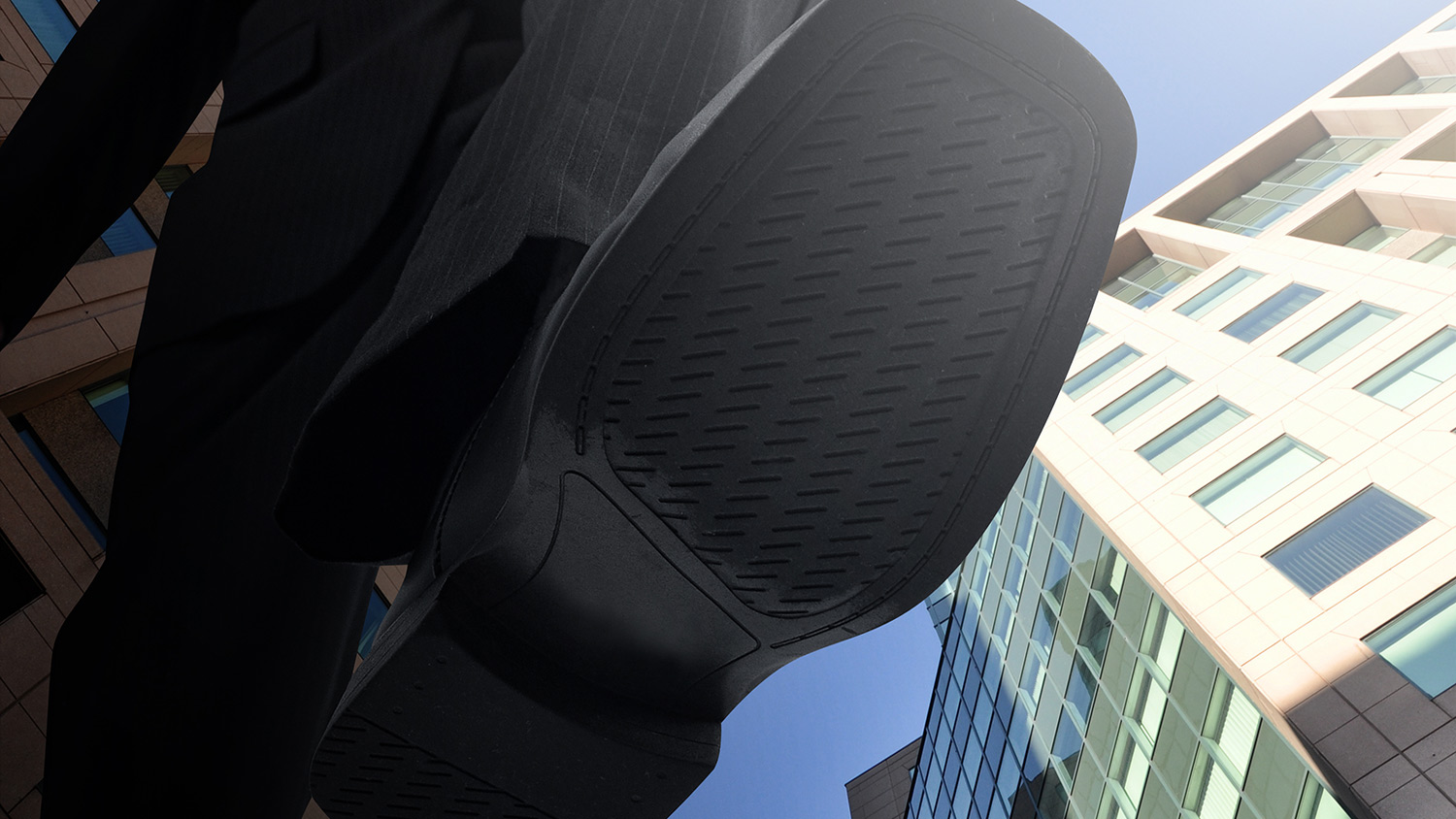A coalition of conservative pressure groups has defeated any hope that congressional Republicans would back a gas tax increase to fund our nation’s transportation.
A higher gas tax is badly needed. The gas tax has not been raised since 1993, even to keep pace with inflation. As Americans drive less and vehicles become more efficient, gas tax revenue falls. Meanwhile, our infrastructure crumbles.
But last Wednesday, some 50 anti-government groups, including Koch brothers front group Americans for Prosperity (AFP) and other recipients of the Kochs’ largesse such as Freedom Partners, sent a letter to Congress calling on it to oppose any increase in the federal gasoline tax. Among their chief complaints, “Washington continues to spend federal dollars on projects that have nothing to do with roads like bike paths and transit.”
It’s part of the right-wing and Koch network’s coordinated national attack on transit. As Streetsblog’s Angie Schmitt has reported, the Kochs are going after transit in local referenda. Local AFP chapters have been leading the charge against transit expansions in regions like Indianapolis and Nashville. Last month, Urban Milwaukee reported AFP is trying to block a streetcar project. And Randall O’Toole, the anti-transit flunky at the Koch-funded Cato Institute, is arguing against a new line on D.C.’s metro that would link the urbanizing inner-ring Maryland suburbs.
The Kochs make their money largely in fossil fuels. They, and other backers of conservative pressure groups, oppose the gas tax because they see it as a disincentive for driving. The Kochs especially hate public transportation because it gives their consumers an alternative to driving. Taxing emissions is the way to recover some of those costs from the polluters themselves. Taxing just gasoline is a poor substitute for taxing CO2, but it’s a start. The gas tax should be set high enough to bring in more revenue than we need for highway construction and maintenance, because it should also give us money to compensate for the cost of car pollution. That extra revenue should go toward programs that liberate us from dependence on cars, like mass transit. Without an adequate gas tax, we’re all subsidizing driving, first by paying for the roads with general tax revenues and then again by sticking society with the health care and lost business costs from smog and climate change.
In their anti-gas tax letter, Schmitt writes, “The billionaire-friendly coalition is trying to play the populist card,” by complaining about the cost burden on poor families. But many of the poorest families cannot afford a car and so rely on transit. Refusing to raise revenues for transit will hurt them most of all.
According to transit advocacy insiders, the letter dealt a devastating blow to fragile hopes that the gas tax would get a long-overdue increase as part of reauthorizing the federal Surface Transportation law. “The letter just killed our momentum, I think permanently,” said an official at the American Public Transportation Association, who requested anonymity in order to speak frankly.
It’s unclear how much momentum was there in the first place. Congressional Republicans have been refusing to raise the gas tax ever since they took over Congress in 1995 and tried to repeal the 1993 increase. Anti-tax, anti-government orthodoxy has only grown more powerful within the GOP since then. Republican demagogues like former House Speaker Newt Gingrich have continued to mock mass transit as only of use to coastal elites. And the Tea Party movement has grown curiously obsessed with opposing smart growth. (That obsession has not just grown up organically: AFP hands out brochures attacking transit and sustainable city planning as part of the U.N.’s “Agenda 21” conspiracy to control your community.)
But there were signs of hope. In the first week of January, Senate Republican Conference Chair John Thune (R-S.D.) and Environment and Public Works Committee Chair James Inhofe (R-Okla.) said Republicans might want to boost the gas tax. Days later, Senate Finance Committee Chair Orrin Hatch (R-Utah) said a higher gas tax is “a small price to pay for the best highway system in the world.” Inhofe admitted to The Hill that his colleagues would probably reject covering the entire Highway Trust Fund shortfall with new gas tax revenue, but he suggested that maybe they could combine a modest gas tax increase with another new source of funding.
Even then it was unlikely. Hatch, Inhofe, and Thune are all conservatives from conservative states. Inhofe is the Senate’s leading denier of climate science. But even the Senate Republican caucus’ right wing looks moderate next to its counterparts in the House of Representatives. As conservative as Utah and Oklahoma are, some House districts lean even further right. And most House Republicans are not veteran legislators, accustomed to the practical constraints of running a functioning country. Indeed, from the government shutdown and debt-ceiling negotiations, it isn’t so clear that House Republicans even want the country to function.
And so, while veteran senators considered raising the gas tax, House Speaker John Boehner (R-Ohio) said the votes weren’t there. Just days later, on Jan. 15, House Ways and Means Chair Paul Ryan (R-Wis.) said flatly, “We won’t pass a gas tax increase.”
Even so, smart growth and mass transit supporters held out hope. In theory, transportation should have different politics than welfare. It is, as Inhofe points out, a user fee for driving on the roads, not a redistributive tax. Every state needs its roads, and most of the gas tax money goes back to states automatically rather than to the poorest areas.
But the conservative base exercises enormous power over congressional Republicans. “[Senate Majority Leader Mitch] McConnell said no [to raising the gas tax] soon after the letter was released, and now everyone is trying to find alternative ways,” says the APTA official. “It was impressive, in a depressing way, how much clout that letter had.” (Environmentalists, who sent a letter to President Obama asking him to stop promoting fossil fuel production, to no avail, can only dream of having such influence over Democrats.)
What other options do we have for funding our crumbling transportation infrastructure? President Obama is now proposing to raise transportation revenue through corporate tax reform. Republicans may reject that too. Ryan’s office has already said closing corporate tax loopholes should be used only to lower corporate tax rates, not to raise revenue. And the same coalition of conservative action groups is likely to try to block Obama’s proposal. After all, in their letter they assert, “transportation infrastructure has a spending problem, not a revenue problem.” Instead of finding a way to pay for transportation needs, they argue, Congress should cut the spending down to the constantly shrinking revenue.
The end result will probably be that transportation spending gets extended again at current, inadequate spending levels with the revenue shortfall covered with some short-term patch that Republicans can live with. That would hardly be a bold vision for the future, but few things that come out of Washington are these days.



